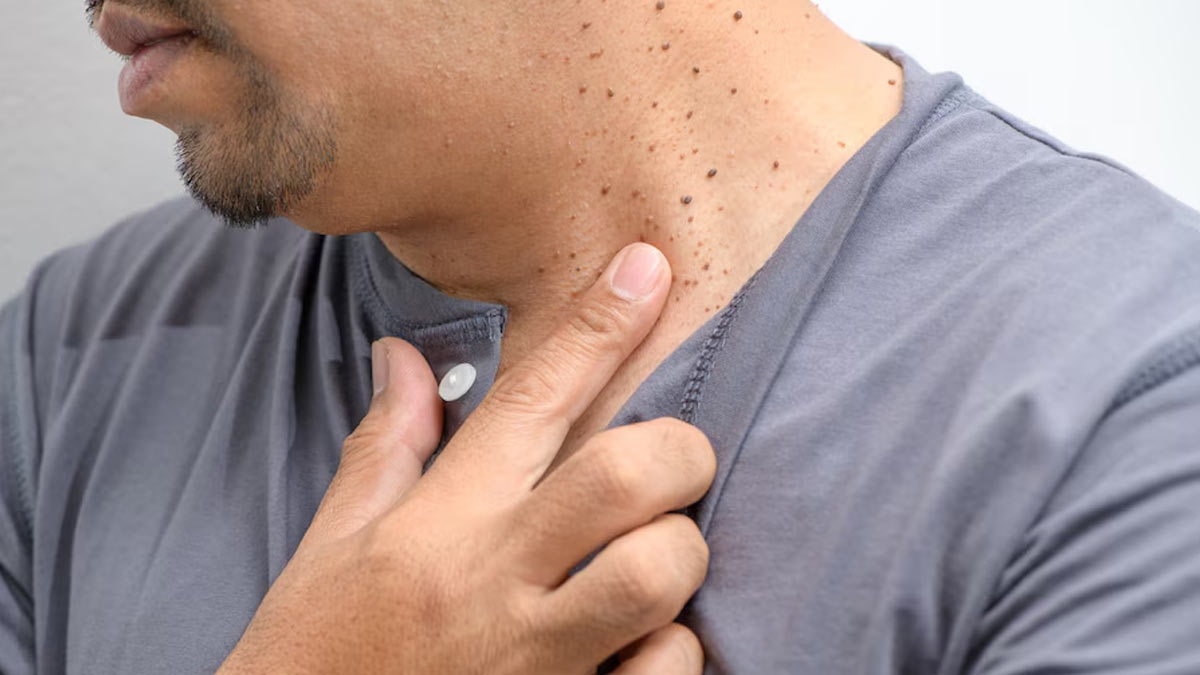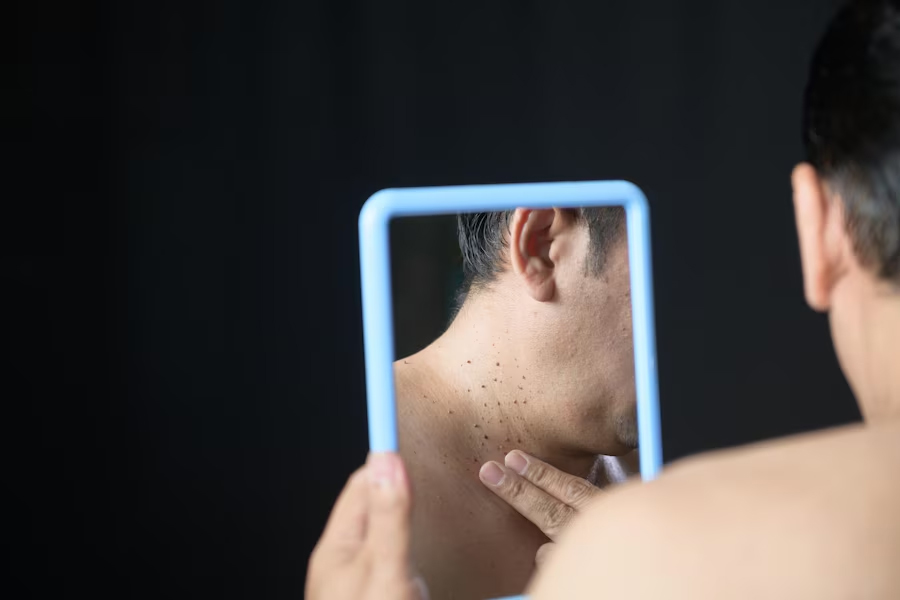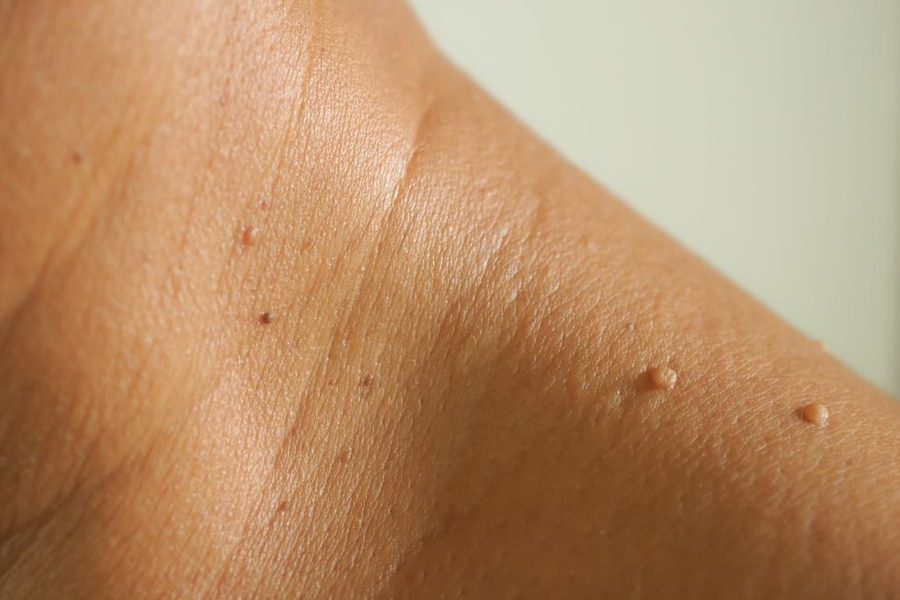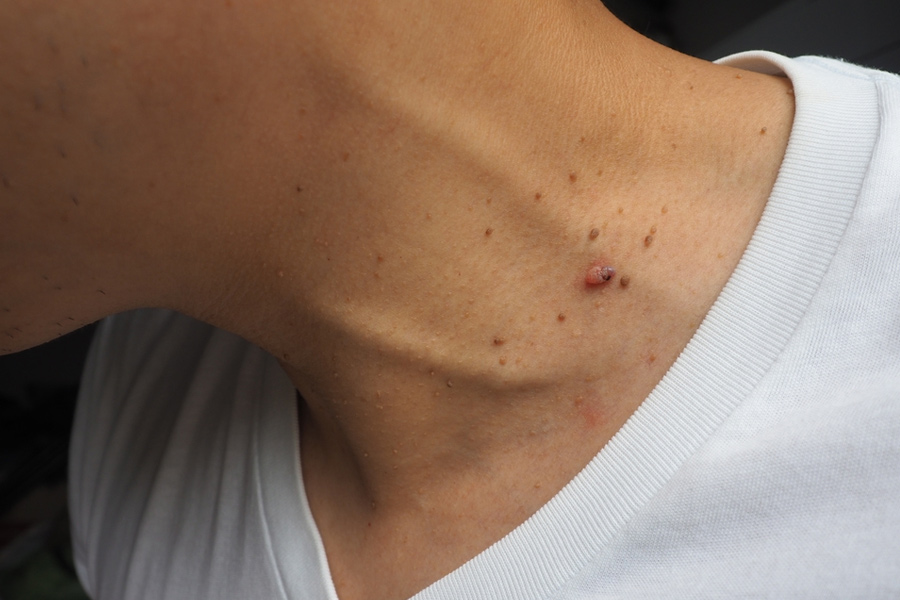
If you have ever come across tiny skin growths on your neck, it could be due to various reasons. These are called skin tags, also known as acrochordons. According to StatPearls Publishing, an estimated 50–60% of adults are likely to develop it in their lifetime. The good news is most skin tags are benign in nature, meaning they cause no serious threat to your health. However, it is still crucial to understand its causes and explore treatment options.
Table of Content:-
In this article, we will focus on skin tags, particularly on your neck, and provide you with a detailed guide to their causes, risk factors, and treatment options.
Also Read: Can Skin Tags Run In Families? We Asked An Expert
What Causes Skin Tags On The Neck?

Speaking with the OnlyMyHealth team, Dr Vichitra Sharma, Consultant Dermatologist, Amrita Hospital, Faridabad, says, "Skin tags are small, benign growths of skin that often appear on the neck. They typically develop in areas where the skin folds or creases, leading to friction."
Shedding light on some of the primary causes, she lists:
Friction: Repeated rubbing of the skin, especially in areas like the neck, can lead to the formation of skin tags.
Genetics: There can be a hereditary predisposition to developing skin tags. According to the article published in StatPearls Publishing, genetic disorders like Birt-Hogg-Dube and tuberous sclerosis can cause people to develop a large number of skin tags. These skin tags often form a necklace-like pattern around the neck, which is known as the "molluscum pendulum necklace sign." This is in addition to other skin and body problems associated with these genetic conditions.
Hormonal changes: Hormonal fluctuations, particularly during pregnancy or in individuals with insulin resistance, metabolic syndromes like PCOD, deranged lipids, and diabetes, can increase the likelihood of skin tags.
Ageing: As the skin ages, it becomes more prone to developing skin tags, particularly in areas like the neck where skin might sag or fold. In fact, research suggests the probability increases after the 40s.
Who Is Most At Risk?

Dr Sharma says, “Skin tags on the neck may be associated with several underlying health conditions or risk factors, including:
- Obesity: Individuals with higher body weight are more prone to skin tags due to increased skin folds and friction.
- Diabetes: Insulin resistance and type 2 diabetes are commonly linked to the development of skin tags.
- Metabolic Syndrome: Conditions like hypertension, high cholesterol, and insulin resistance are often correlated with skin tags.
Also Read: Can Skin Tags Be Cancerous? Expert Answers
Treatment Options
While skin tags are usually harmless and require no treatments, for those who wish to remove them, there are some options you can explore. These include:
- Cryotherapy: This involves freezing the skin tag with liquid nitrogen. It’s a quick procedure but may cause mild discomfort and temporary skin discolouration.
- Excision: A dermatologist can cut off the skin tag with sterile scissors or a scalpel. This method is effective and usually doesn’t require stitches.
- Electrosurgery: This method uses electric current to burn off the skin tag. It’s effective but may leave a small scar.
- Ligation: Tying off the skin tag with a small piece of thread or surgical suture cuts off blood supply, causing the tag to fall off over time.
If you’re worried about the outcome and risks, Dr Sharma says, “The risks involved with these procedures are minimal but may include slight bleeding, infection, and in some cases, minor scarring.”
Can Skin Tags Be Prevented?

While it's not always possible to prevent skin tags, certain lifestyle modifications and skincare routines might reduce their likelihood:
- Maintaining a healthy weight can minimise skin folds and friction, reducing the chances of developing skin tags.
- Keeping the skin clean and dry, especially in areas prone to friction, may help prevent skin tags. Moisturisers or powders can reduce friction in skin folds.
- Regularly checking your skin can help you catch and address skin tags early.
- Regular medical checkups for people with diabetes and metabolic disease as advised by your doctor.
Conclusion
Skin tags on your neck are common and mostly harmless. They are either a result of friction, ageing, genetics, or can be more prevalent in people with obesity. Whatever the cause might be, people shouldn’t worry you too much about it unless it has a malignant cause. You can always choose to remove it, but only under a dermatologist’s supervision.
Also watch this video
How we keep this article up to date:
We work with experts and keep a close eye on the latest in health and wellness. Whenever there is a new research or helpful information, we update our articles with accurate and useful advice.
Current Version